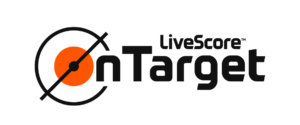By Dr. Vivian Chan, CEO of Sparrho,
Truth decay is one of the defining macro trends of our time. Take Britain, for example, where 45 per cent of people reported that they encountered “fake news” every day online. At its peak, there were 200 million monthly engagements with fake news stories on Facebook
In an era of clickbait and pseudoscience, finding the truth has become eminently more difficult. Therefore, content based on verified scientific research has become an essential tool for building trust in brands and separating fact from fiction.
With a greater focus on science, brands can increase engagement, conversion and, ultimately, success. They can be seen as the real-world thought leaders in an era of misinformation. And it all starts with building trust.
Fact or fiction?
Building brand trust is vital for any company, no matter which field they operate in. Eighty-one per cent of consumers said they use a brand based on how much they trust them. In the current climate, being seen as trustworthy holds the key to growth.
Content marketing is one of the best ways for a company to build trust. It helps create value through marketing and engages with audiences who have switched off from traditional marketing. Seventy-eight per cent of consumers said they trust brands who implement content marketing.
However, in a world of misinformation, brands need to move their content marketing up a gear with “assistive content”, which is science-led and evidence based. There is so much intelligence out there, but it’s locked away in journals and academia.
Brands who access these insights can put themselves at the forefront of their industries. Science-based summarised content has the ability to help brands separate fact from fiction and can act as a powerful step-change for effectiveness. This is especially important in a time where “fake news” runs rampant.
You only need to look at wellness and lifestyle brand Goop to see the trouble caused by misinformation. When it comes to brand interaction, consumers are savvier than ever and can quickly “cancel” a brand that misleads with its messaging.
Trusted and fact-based science, on the other hand, can help win audiences over. If a brand can highlight solid scientific foundations of its products and services, it stands a greater chance of success. This is backed up by 73% of consumers saying they trust a brand because it delivers high quality products or services.
Using content to rebuild brand trust and engagement
Easier access to information has made it more seamless to provide factually-correct content. Brands are now beginning to use scientific research papers, expert insights and jargon-free summaries that are easily digestible and showcase the scientific fundamentals of products and services.
The result is credibility-boosting content that resonates with its audiences. These insights create value, with customers willing to choose the fact-led brand over one that is more superficial in its marketing approach.
Content also helps to create visibility. Customers don’t read your internal documents. Therefore, they have no idea about your ethos unless you can demonstrate them through marketing. The more high-quality, factual-led content they see, the higher chance of positive engagements.
Defining trust in 2020
According to the Edelman 2020 Trust Barometer, people focus on two distinctive attributes centred around trust: competence and ethical behaviour. It’s easy for brands to say what they want to do or how they’re going to do it. But the proof is in the actions, and competence comes from delivering on promises. When brands show competence, they build trust with their audiences.
In a world where climate change dominates the agenda, being seen as an ethical brand is also vitally important – though ethics isn’t solely about the environment. From diversity in the workplace to human rights, brands need to take the right actions and work continuously to improve society.
Somewhat worryingly, this year’s Trust Barometer revealed that none of the four institutions (Government, Media, Business and NGOs) are seen as competent or ethical. Out of these four institutions, business rank highest for ethical behaviour with a 54-point lead over the Government.
NGOs lead on ethical behaviour, with a 31-point gap between them and government (25 points on business). Worringly, the Government and the media are perceived as incompetent and unethical.
Finding value in trust
After tracking 40 global companies throughout the past year, the Edelman Trust Barometer found that ethical drivers such as integrity, dependability and purpose accounted for 75 per cent of the trust capital for a business. Competence accounted for only 24 per cent.
It all drills back to scientific content, which can drive forward aspects like integrity, dependability and purpose. If you can show how science underpins your products and services, you’re adding value rather than meaningless, self-centred brand content.
T-Mobile’s relaunch, which featured flash mob dance ads at London Liverpool Street, increased sales by 49 per cent and market share by six per cent. The entire concept was built around science. That’s one example of using science to inform internal decisions.
From a customer-facing point of view, science equals knowledge, and distilling it onto your audience reinforces customer trust – whether you deal in the arts, pharma, lifestyle or other diverse industries. Once upon a time, the “science nerds” were laughed at. Now science is the driving force behind customer trust and higher rates of success and conversions.
Science is a marketer’s dream.









